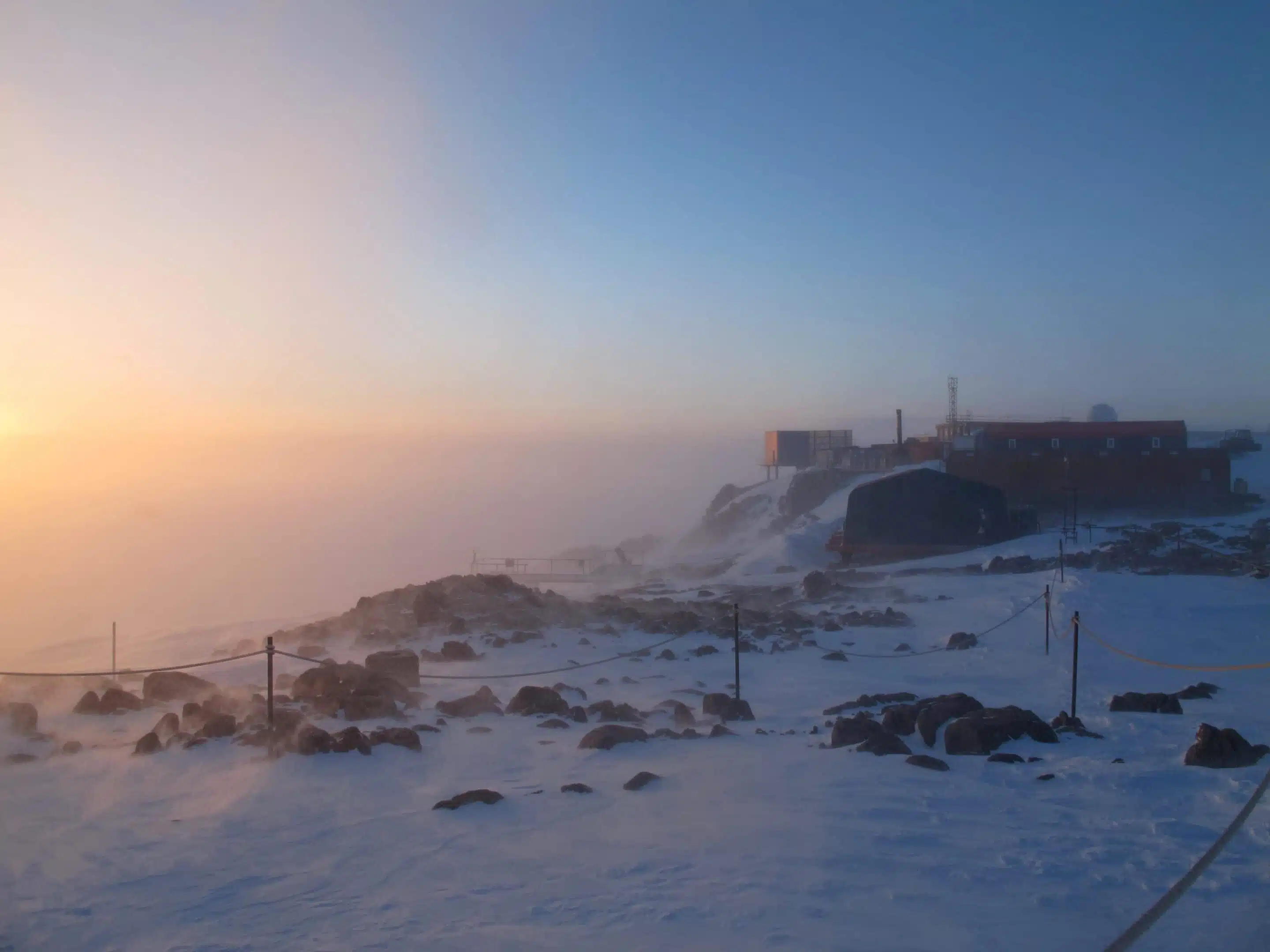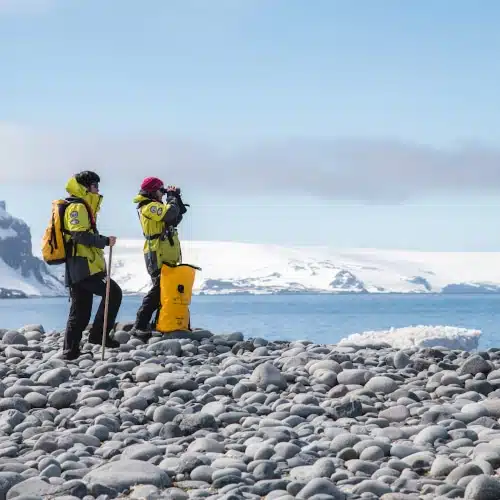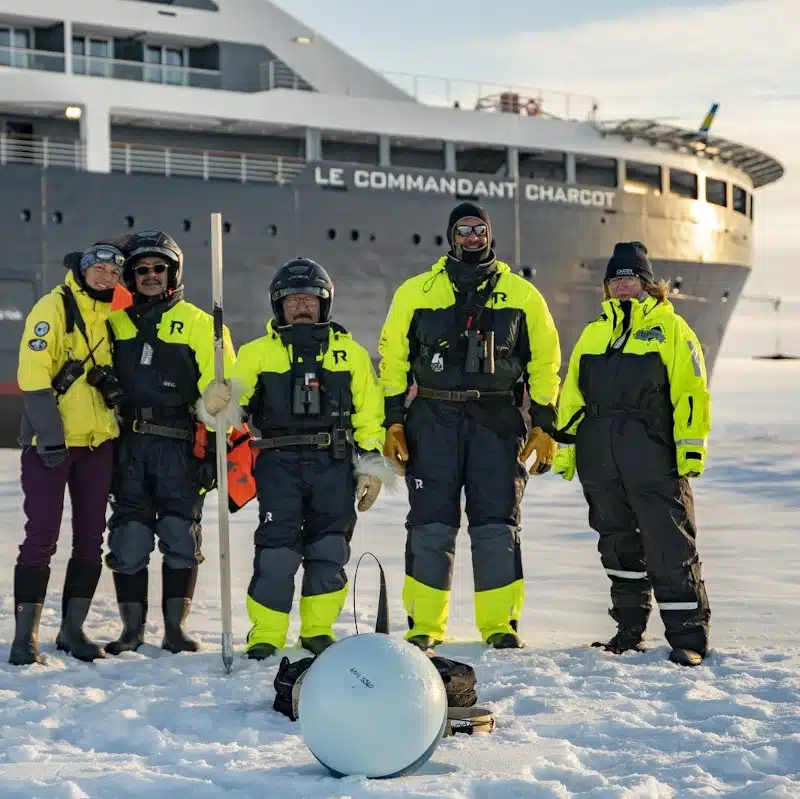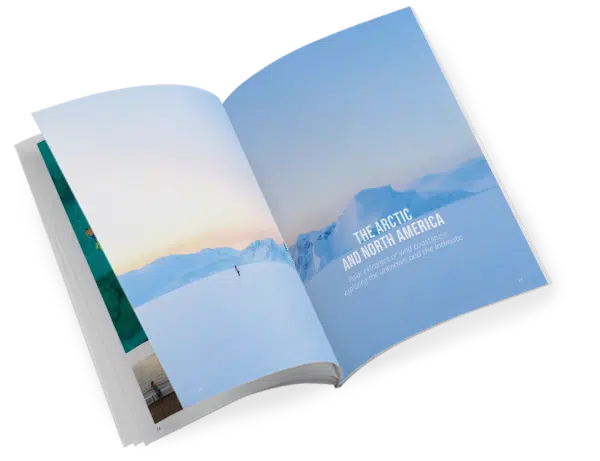Le Commandant Charcot joins the scientific adventure
In the context of global warming, studying polar regions represents a challenge for logistics and science. Le Commandant Charcot offers a unique opportunity to extend polar field campaigns to high latitudes. Scientists who embarked during the first expedition cruise to the North Pole have been able to notice evidence of climate change. Below, they share their first impressions and their points of view concerning the current issue of polar research.
Polar regions, sentinels of climate change
High latitudes undergo the consequences of climate change before many others, and in an intense way. Camille Lique, researcher, oceanographer and physician at LOPS and Ifremer institutes, who presented onboard Le Commandant Charcot during its first expedition to the North Pole, confirms: “Natural elements are changing while we are studying them. It continuously requires us to adjust, to evolve, to adapt our observations and our instruments to understand the processes and face them as best as possible.”

Understanding and protecting polar regions: a common mission
Remoteness, cold, ice, and storms make polar territories inaccessible places. Working there requires specific infrastructures. Many research stations were built in the Arctic and in Antarctica between 1957 and 1959, when the Antarctic treaty was signed. France built the Dumont D’Urville station in Adelie Land in 1956 and co-lead the continental station Dome C with Italian teams. In Svalbard, France placed its station inside the international base of Ny Alesund. With the intention of sharing the high costs of performing polar missions, research institutions typically join forces and make associations through international networks. In 2020, the MOSAIC Arctic expedition, which took place on the German icebreaker Polarstern, involved 15 countries.
I did watch at thousands of pictures of sea-ice, but its only during this trip to the North Pole that I walked on it for the first time and that I realised, hours after hours, how intensely ice conditions constantly evolve. The heterogeneity of its dynamics and appearance is significant. (Camille Lique)
Le Commandant Charcot, a unique observation platform
For scientists, observing field regions directly enables them to understand areas which have been previously only investigated at distance, from laboratories. On-site research helps make correlations with theoretical models. Icebreakers dedicated to polar explorations are rare. In Antarctica, scientists must often require the help of other ships like fishing, merchant, or tourism ships, who then become platforms for science opportunities. In this context, Le Commandant Charcot, the newest ship in the PONANT fleet dedicated to high polar expeditions, is a vital asset for the research community. Nicolas Kolodziejczyk, researcher at the LOPS at Brest University, explains: « Le Commandant Charcot offers the possibility to perform some routine measurements and deploy instruments from which collected data will be of high value for the observation’s networks. This ship covers very few sampled regions, so each new data is highly valuable ».
A ship ready for science
Onboard, a laboratory room equipped with direct openings to the sea enables scientists to place meteorological bowls, temperature-salinity sensors, and other sampling instruments. Microscopes, sampling pumps, and other basic equipment are available to the researchers. A science coordinator is also at their service.
Photo credits: © Daphné Buiron / © Studio PONANT

Donnez du sens à votre voyage
Join PONANT on board Le Commandant Charcot for an exploration at the edge of the polar world.



